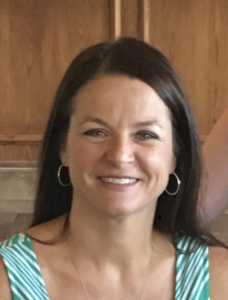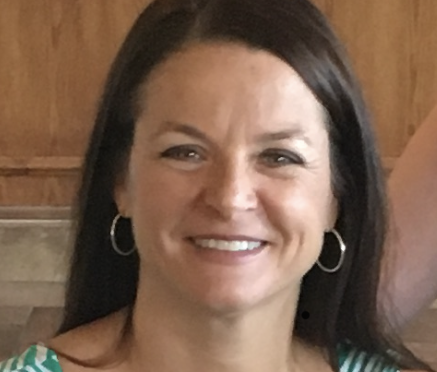Monthly Archives: June 2020
Driver’s License Renewal Made Easier
Governor Laura Kelly Announces Executive Order Extending Relief from Online Driver’s License Renewal Age Restrictions
TOPEKA – Governor Laura Kelly today announced she signed an Executive Order Monday that will help make renewing driver’s licenses easier for people across the state.
Executive Order #20-46 offers temporary relief from age restrictions that prohibit applicants 50 years of age or older from applying to renew their driver’s license online. Under the new order, all drivers under the age of 65 are permitted to use the online renewal system.
“Providing every opportunity for Kansans who are at a higher risk of COVID-19 to conduct business virtually is crucial in our efforts to safely get Kansans back to work and back to school as quickly as possible,” Governor Kelly said. “This order is one of several actions my administration is working on to help Kansans return to normal while making sure we protect the health of our of seniors and others who are at higher risk in this pandemic.”
The order will remain in place until rescinded, until July 31, 2020, or until the statewide State of Disaster Emergency expires, whichever is earlier.
Kansas Quarantine List Changes
KDHE adds states to travel quarantine list, removes others
TOPEKA – The Kansas Department of Health and Environment (KDHE) has added three states to the quarantine list: Alabama, Arizona and Arkansas, and removed six states from the list: Connecticut, Illinois, Massachusetts, New Jersey, New York and Rhode Island. This is effective for persons returning today, June 17, and moving forward. The state will review/update this list on July 1.
A comprehensive list of those individuals in Kansas needing to quarantine for 14 days includes those who have:
Traveled to:
- Maryland on or after May 12.
- Alabama, Arizona and Arkansas on or after June 17.
- Been on a cruise ship or river cruise on or after March 15.
- International travel on or after March 15.
Others needing to continue quarantining:
- Received notification from public health officials (state or local) that you are a close contact of a laboratory-confirmed case of COVID-19.
Please note these quarantine orders do not apply to critical infrastructure sectors needed to continue operations during this pandemic. Public health, including hospitals, clinics, law enforcement, meatpacking supply, etc. need to have the staffing resources to continue serving Kansans. While KDHE strongly recommends these quarantine restrictions for everyone, we do recognize that services need to continue. KDHE encourages facilities to ensure they have updated their Emergency Preparedness Plans and implement protocols to ensure that no employee comes to work symptomatic.
For more information on COVID-19, please visit the KDHE website at www.kdhe.ks.gov/coronavirus.
Census Results Affect Government Representation, Funding and Community
Why The Governments Asks The Census Questions
Census results affect your voice in government, how much funding your community receives, and how your community plans for the future.
The 2020 Census is easy. The questions are simple.
Responses to census questions provide a snapshot of the nation.
When you fill out the census, you help:
Determine how many seats your state gets in Congress.
Inform how more than $675 billion in federal funding is distributed to states and communities each year.
Create jobs, provide housing, prepare for emergencies, and build schools, roads and hospitals.
The 2020 Census will ask for the following information:
Number of people at address
We ask this question to collect an accurate count of the number of people at each address on Census Day, April 1, 2020. Each decade, census results determine how many seats your state gets in Congress. State and local officials use census counts to draw boundaries for congressional districts, state legislative districts, and school districts.
Any additional people living or staying there
Our goal is to count people once, only once, and in the right place according to where they live on Census Day. Keeping this goal in mind, we ask this question to ensure that everyone living at an address is counted.
Owner/Renter
We ask about whether a home is owned or rented to create statistics about homeownership and renters. Homeownership rates serve as an indicator of the nation’s economy and help in administering housing programs and informing planning decisions.
Phone number
We ask for a phone number in case we need to contact you. We will never share your number and will only contact you if needed for official Census Bureau business.
Name
We ask for names to ensure everyone in the household is counted. This also helps us to keep ancestry records. Listing the name of each person in the household helps respondents include all members, particularly in large households where a respondent may forget who was counted and who was not.
Sex
We ask about the sex of each person to create statistics about males and females. Census data about sex is used in planning and funding government programs, and in evaluating other government programs and policies to ensure they fairly and equitably serve the needs of males and females. These statistics are also used to enforce laws, regulations, and policies against discrimination in government programs and in society.
Age and date of birth
We ask about age and date of birth to understand the size and characteristics of different age groups and to present other data by age. Local, state, tribal, and federal agencies use age data to plan and fund government programs that provide assistance or services for specific age groups, such as children, working-age adults, women of childbearing age, or the older population. These statistics also help enforce laws, regulations, and policies against age discrimination in government programs and in society.
Hispanic, Latino, or Spanish origin
We ask about whether a person is of Hispanic, Latino, or Spanish origin to create statistics about this ethnic group. The data collected in this question is needed by federal agencies to monitor compliance with anti-discrimination provisions, such as the Voting Rights Act and the Civil Rights Act.
Race
We ask about a person’s race to create statistics about race and to present other statistics by race groups. The data collected in this question is needed by federal agencies to monitor compliance with anti-discrimination provisions, such as the Voting Rights Act and the Civil Rights Act.
Whether a person lives or stays somewhere else
Our goal is to count people once, only once, and in the right place according to where they live on Census Day. Keeping this goal in mind, we ask this question to ensure individuals are not included at multiple addresses.
Relationship
We ask about the relationship of each person in a household to one central person to create estimates about families, households, and other groups. Relationship data is used in planning and funding government programs that provide funds or services for families, people living or raising children alone, grandparents living with grandchildren, or other households that qualify for additional assistance.
For more information, visit:
2020CENSUS.GOV
Shape Your Future. Start Here.
The Census Counts Everyone Living in the United States
What is the U.S. Census?
Since 1790, every 10 years, we count everyone who lives in the country, as required by the U.S. Constitution. We collect basic information, such as age, sex, and race, for every person in every household. Starting in the spring of 2020, everyone will be asked to complete the 2020 Census online, by phone, or by mail.
Why is the 2020 Census important for you?
The 2020 Census is much more than just a head count. It also gives you an opportunity to shape the future for yourself, your family, and your community
. Data collected through the census:
Provides a picture of our nation and its communities and helps determine where to build new schools, hospitals, and businesses.
Informs the allocation of more than $675 billion in federal funding to states and communities each year for programs that support education, housing, health facilities, transportation, emergency services, food assistance, and more.
Determines how many representatives
each state will have in Congress.
Census responses also help your community in other ways. For example, the information can be used to help protect civil rights laws and determine when services should be provided in other languages. The information can also attract businesses that cater to communities with diverse populations. It can help employers better understand the local talent pool and provide new job opportunities.
Who is counted in the 2020 Census?
The 2020 Census counts every person living in the United States on April 1—no matter where they are from, why they are here in the United States, and whether or not they are documented. This includes temporary workers, international students, and workers on assignment from overseas.
Will my information be kept safe?
Yes. The U.S. Census Bureau is bound by law to protect the privacy and confidentiality of everyone who responds to the census. These protections ensure the personal information you provide cannot be used against you in any way.
The Census Bureau combines your responses with other responses to produce statistical summaries. It is against the law for the Census Bureau to disclose or publish any identifiable information about an individual or household. The penalty for violating this law is severe: a fine of up to $250,000, imprisonment for up to 5 years,
or both.
By law, your personal information cannot be used against you or against anyone else by any government agency or court—and it can’t be accessed by the police department, DHS, ICE, FBI, or CIA.
The Census Bureau encrypts all responses submitted online and stored in its computers.
Shape your future by completing the 2020 Census.
For more information, visit:
2020CENSUS.GOV
New Realtor In Town: Diane Striler


The Fort Scott Police Department Daily Reports June 16
Click below:
Chamber Coffee at Heritage Park Pavilion June 18
|
|
|
|
|
|
|
|
|
|
|
|
|
|
|
The Bourbon County Sheriff’s Office Daily Reports June 17
COVID-19 Relief Funding for Kansas Counties, Agencies
State Finance Council Approves COVID-19 Relief Funding for Kansas Counties, Agencies
TOPEKA – The State Finance Council today approved the distribution of $400 million in funding from the Coronavirus Relief Fund to local Kansas governments to help combat the health and economic challenges COVID-19 has brought on their communities, and to help prepare for possible future outbreaks of the disease.
“This first round of coronavirus aid will be critical as we work to get Kansans back to work and school, in the safest way possible,” Governor Laura Kelly said. “I’m pleased that the State Finance Council acted quickly, and in the best interest of Kansans. We must continue to provide our communities with the resources needed to mitigate the spread of the virus and revitalize our state’s economy.”
The initial funding proposal came from Governor Kelly’s Strengthening People and Revitalizing Kansas (SPARK) Taskforce Executive Committee, which is charged with distributing over a billion dollars in federal funds Kansas received under the Coronavirus Aid, Relief and Economic Security (CARES) Act.
“The funds approved today are a great first step in helping our communities recover from the unique health and economic challenges created by COVID-19,” said Cheryl Harrison-Lee, Executive Director of the Recovery Office. “We will continue to consult with community members as well as experts from the public and private sectors so that our local governments can access funding that fulfills their individual recovery and preparedness needs.”
Under the first round of funding, each county will receive resources based on their population, case rates and unemployment rates. Funds will be provided to counties for both reimbursement and direct aid for eligible expenditures under the CARES Act.
The State Finance Council today also approved reimbursement for COVID-19-related costs for state agencies totaling $16.7 million, as well as FY 2020 expenditures for the Office of Recovery.
“These reimbursements will help offset the unexpected expenses caused by COVID-19 so that Kansans can continue to receive agency support,” Governor Kelly said. “Now more than ever, our state agencies must be ready to offer their quality, much-needed services to the people of Kansas.”
Other actions taken by the State Finance Council in relation to COVID-19 relief:
· Approved allocation of the Governor’s Emergency Education Relief Fund (GEER) to the Kansas Board of Regents;
· Approved expenditures from other agency federal funds that receive grants for the purpose of federal coronavirus relief.
New COVID 19 Case: Bourbon County June 16
SEK Multi-County Health Departments
Bourbon County, Kansas
PRESS RELEASE:
NOVEL CORONAVIRUS/COVID-19
June 16, 2020;
A Bourbon County, KS positive COVID-19 test was confirmed this afternoon. The testing was confirmed through an out of state reference laboratory that was used on the symptomatic individual. This individual and family have been out of state near two weeks and will remain out of state until their isolation and quarantine time is complete. For this reason, we believe there is low risk of exposure for Bourbon County residents. The Bourbon County Public Health Department is working diligently to complete the investigation.
The Bourbon County Public Health Department urges the public to continue to take appropriate actions. Individuals should continue to practice social distancing, clean/disinfect any high touched surfaces, wash their hands with soap and water routinely, use hand sanitizer if soap and water is not available and avoid touching your face (especially eyes, nose & mouth).
Please remember if you have the symptoms to:
Call before going to a Clinic, Hospital, ER, or Health Department
Close contact means: 6 foot or less for 10 minutes or more, with a positive case.
STAY HOME IF SICK!
If you are experiencing life threatening symptoms, PLEASE CALL 911.
For more information you may call the SEK Multi-County Health Department: Bourbon: (620)223-4464 Monday-Thursday 7:00am-5:30pm OR the COVID-19 Hotline: (866)534-3463.You may also visit the COVID-19 Resource Center at: https://www.coronavirus.kdheks.gov/OR Southeast Kansas Multi-County Health Departments on Facebook for local updates.
Political signs not allowed on highway right of way
It’s a sign of the season – campaigning to support your favorite political candidate. However, if your plans involve placing a political sign, the Kansas Department of Transportation (KDOT) reminds you to make sure it’s not located on highway right of way.
By law, all right of way on state highways is to be used exclusively for public highway purposes. Only regulatory, guide signs and warning signs are allowed on the state highway system. KDOT has jurisdiction over all interstate, Kansas and U.S. routes on the state’s 9,500-mile system.
The public should be aware that all political campaign signs or billboards are prohibited on the state right of way.
When KDOT maintenance crews find political or business advertising on state right of way, the signs will be removed immediately without notice. All such signs will then be taken to the closest KDOT subarea office where they can be picked up by the owner with the agreement they will not be placed on state right of way again. All political campaign signs not picked up will be disposed of after the election.
Political campaign advertising is allowed on private property bordering state right of way. However, people erecting signs on private property must first obtain permission from the property owner.




